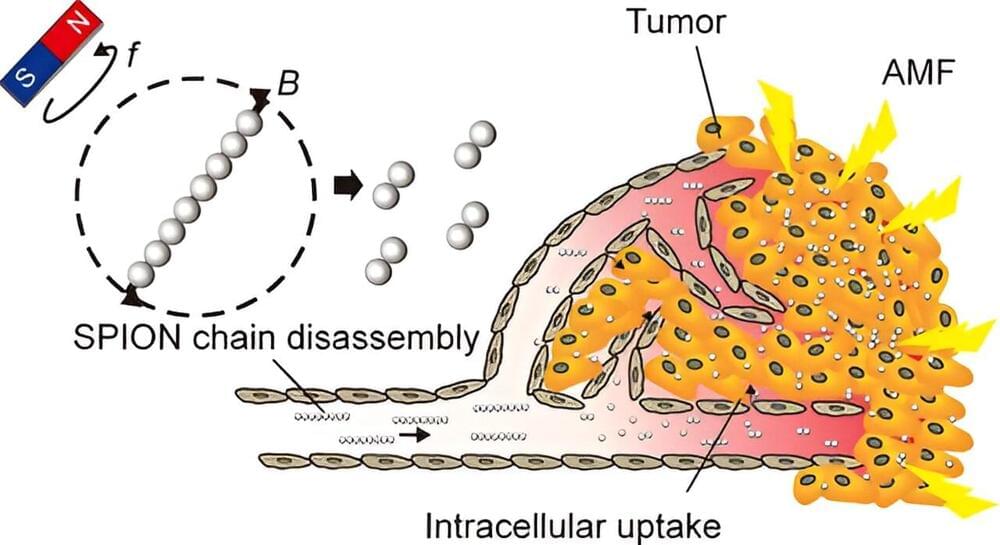A team led by Professor Choi Hong-Soo in the Department of Robotics and Mechatronics Engineering at DGIST has discovered a method to enhance the penetration of magnetic nanoparticles into cancer cells and their magnetic hyperthermia effects through research on chain disassembly and magnetic propulsion mechanisms using a rotational magnetic field.
Published in the journal ACS Nano, their study focused on the delivery of magnetic therapeutic agents using magnetic fields, an area receiving attention in the field of cancer treatment. It is expected to contribute significantly by improving drug delivery efficiency and therapeutic effects in targeted cancer treatments.
Recently, the development of targeted therapeutics that selectively treat cancer cells has been gaining attention in the field of cancer treatment. Among them, research on magnetic carriers that target cancer cells using magnetic fields is underway. However, a problem arises when magnetic nanoparticles are exposed to a uniform magnetic field with a general form; they form long chains in the direction of the magnetic field, making penetration into cancer cells or tumors difficult and reducing the therapeutic efficacy.









